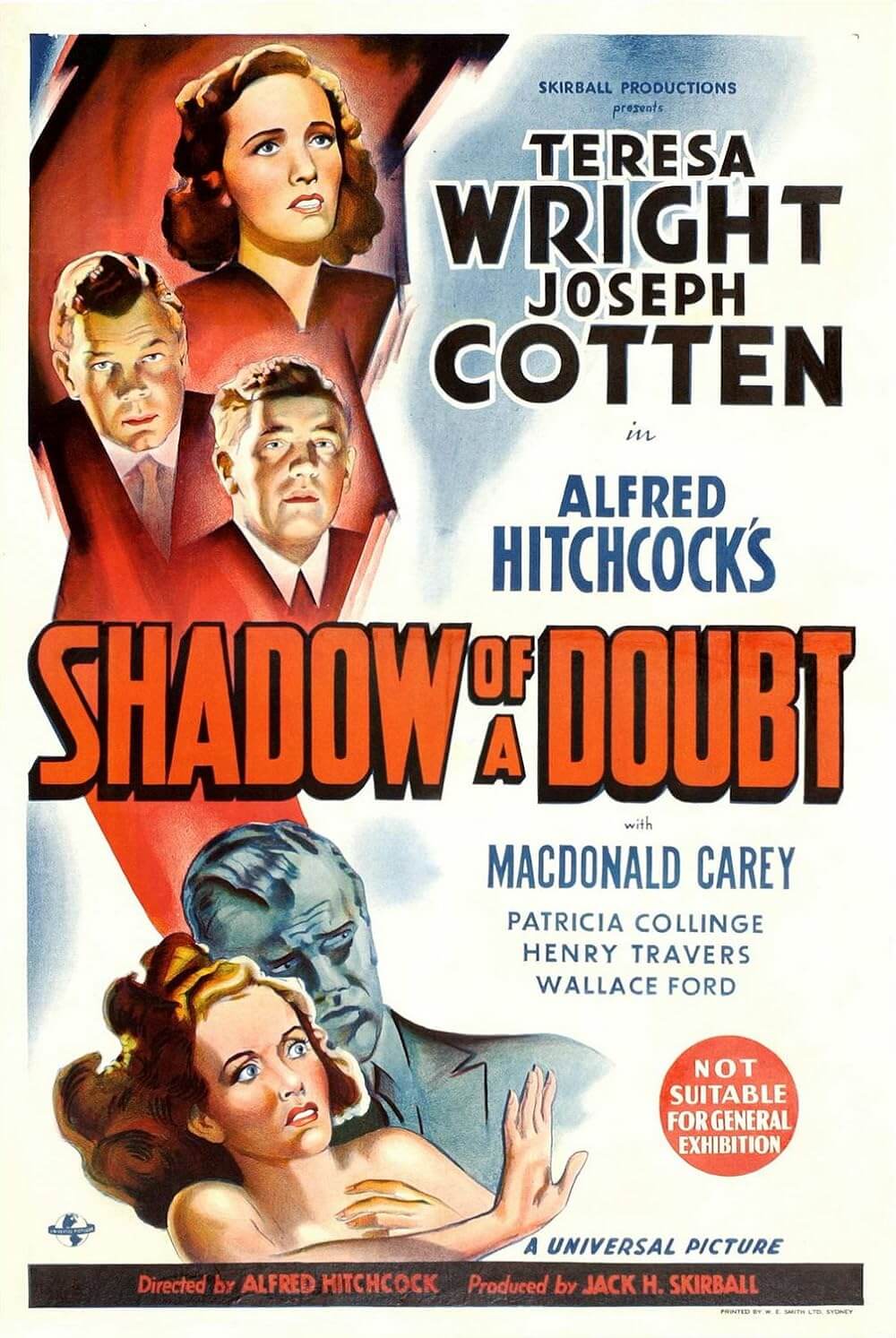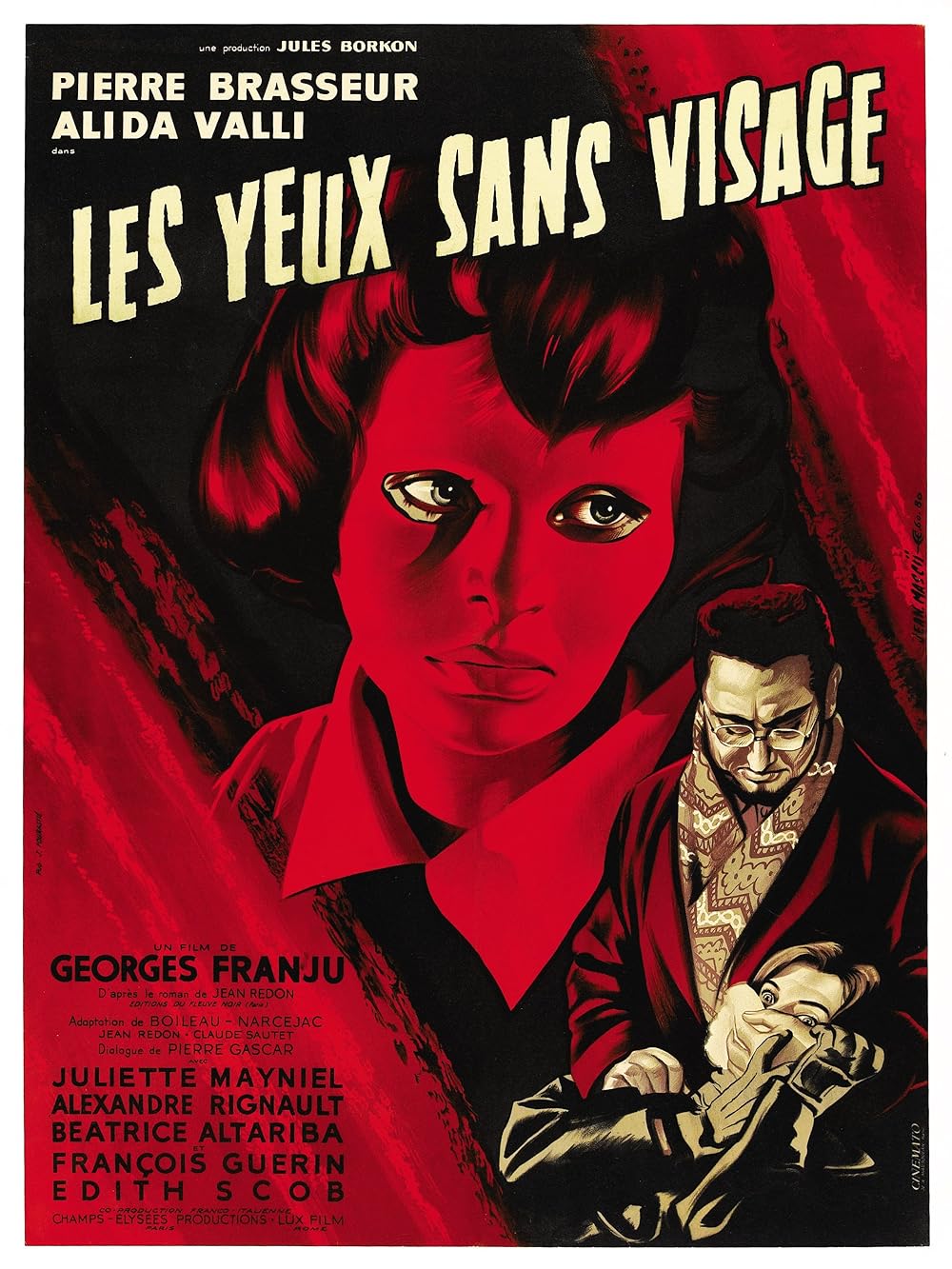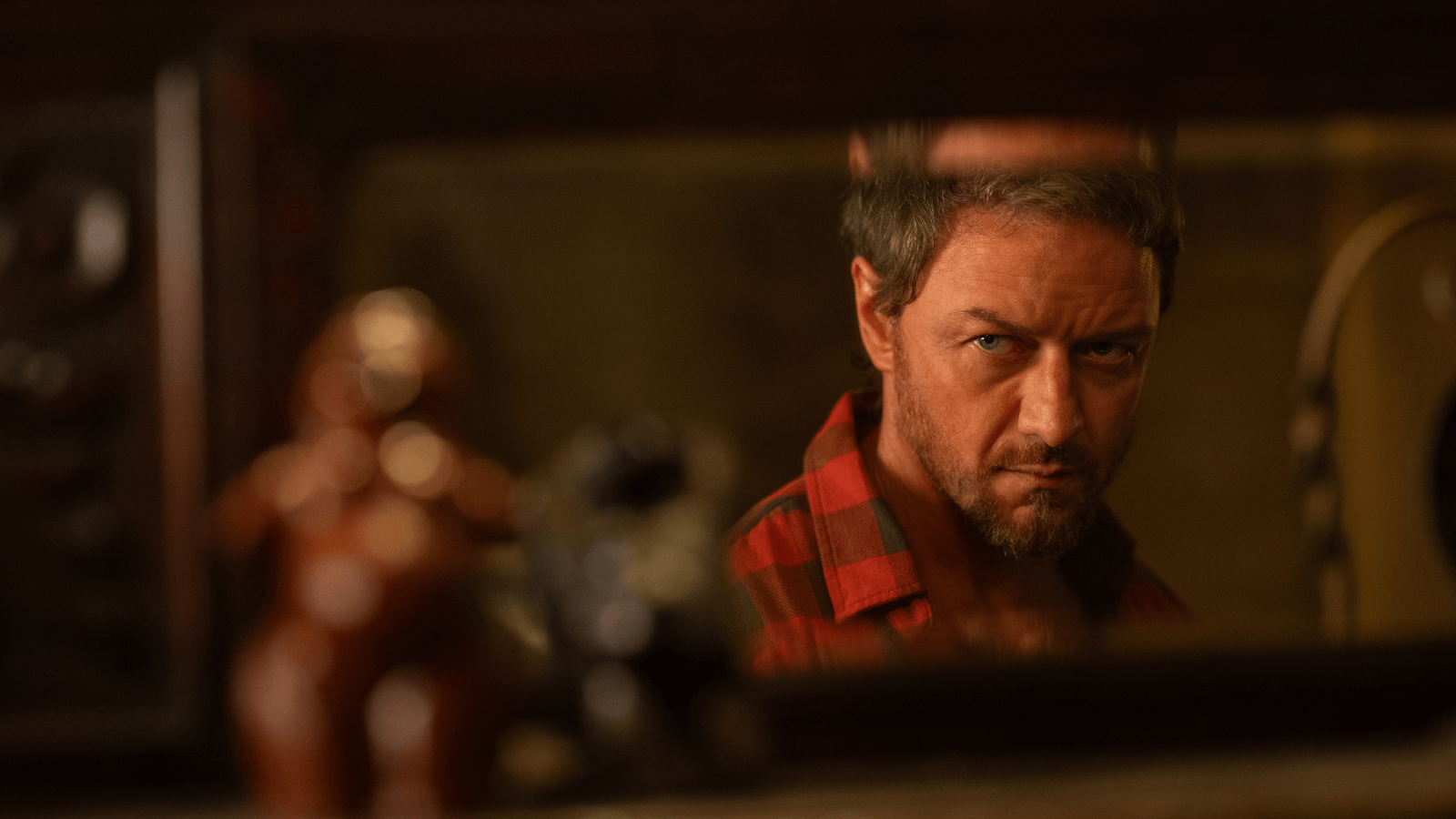
Speak No Evil
By Brian Eggert |
Speak No Evil, a remake of the 2022 Danish film of the same name, presents a textbook case that illustrates the differences between stereotypical European and American sensibilities in cinema. Whereas the original unfolded with restraint and dread that built to a chilling, unforgettable climax, which left many eviscerated and disturbed long afterward, the new version plays out in every way one might expect from a Hollywoodized retread. Written and directed by James Watkins (The Woman in Black, 2012), the update from Blumhouse Productions features less sexual content and more violence, and ultimately, it leaves the viewer with a reassuring sense that order in the universe has been restored. However disappointingly sanitized to crowd-pleasing effect the new version may be, it’s only a lesser film when compared to its predecessor. Viewers who have no experience with the earlier iteration or simply don’t care about the comparison will doubtless find themselves engrossed in this unrelentingly tense scenario—a commentary on how socially conditioned politeness can lead to self-sabotage.
Aside from a few particulars, such as the central couples changing from Danish and Dutch to American and British, much of the Speak No Evil remake closely follows the original. While vacationing in Italy, the Daltons—Ben (Scoot McNairy), Louise (Mackenzie Davis), and their daughter Agnes (Alix West Lefler)—meet another English-speaking couple with a child. Whereas the Daltons remain polite and repressed, the others, the hulking Paddy (James McAvoy) and compliant Ciara (Aisling Franciosi), believe in unreserved honesty, initially with humorous results. Paddy is an alpha-male archetype, a former doctor and longtime hunter, while Ciara is his devoted but subservient wife and enabler. Their inward son, Ant (Dan Hough), was born with a miniature tongue and cannot speak. The vacation friends agree to meet again for a long weekend at Paddy and Ciara’s place in the English countryside, despite Louise’s reservations that they hardly know these people.
Just like in writer-director Christian Tafdrup’s original, Paddy and Ciara’s invite proves discomfiting for the Daltons, with less-than-ideal sleeping arrangements, minor invasions of privacy, and personal slights. Signs of dysfunction in the UK couple ratchet up the unspoken but palpable tension in Ben and Louise’s marriage as well. Take the uncomfortable first night at dinner, where, though Louise is a vegetarian, the couple serves their prized goose named Libby, insisting that Louise take the first bite. Rather than protest or remind them of her vegetarianism—which she believes would be rude and thus unacceptable—she consumes the bird and smiles awkwardly through it. But the warning signs grow when Paddy gets rough with Ant or takes a domineering tone with Ciara. One incident prompts the Daltons to gather Agnes and leave in the middle of the night, only to find themselves forced back to the isolated farmhouse, trapped in a socially impossible situation.
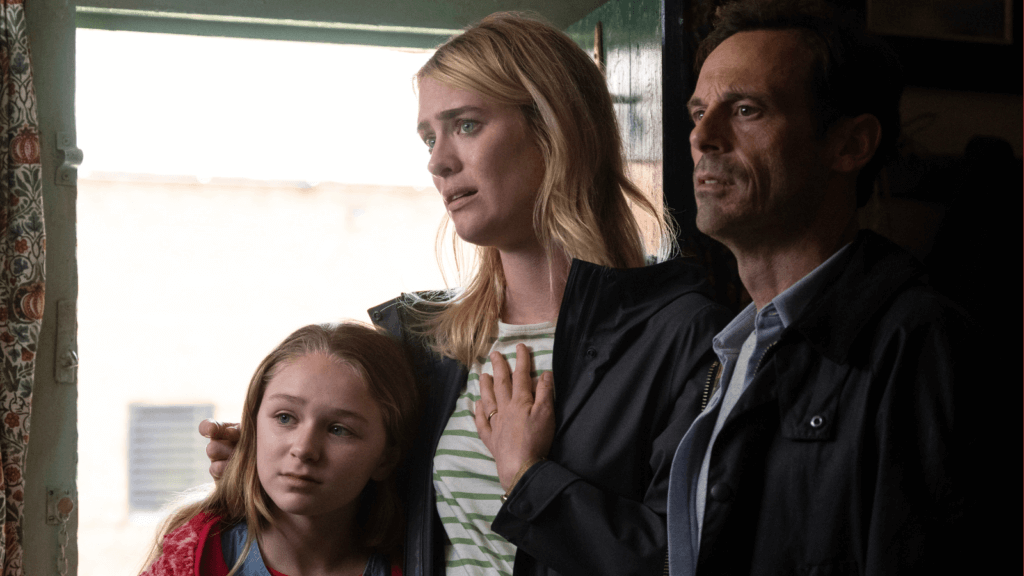 As a Minnesotan, I found the Daltons’ behavior familiar. When the fear of giving offense and avoiding unpleasantness at all costs leads to extreme submissive and self-impeding behavior, this is called Minnesota Nice. The behavior stems from the state’s Scandinavian roots—the same wellspring that informed Tafdrup’s film—and the culture’s stereotypical need for social harmony, suppressed anger, and indirect communication. The original played some festivals before debuting in the US on Shudder, the horror-themed streaming service. I watched Tafdrup’s film at home, which shook me to my core in recognizing these behaviors. However, I’ve wondered how it might play with an audience—especially its shocking finale. I can only speak to what occurred at my prescreening of the remake: The vocal moviegoers laughed nervously, audibly protested Ben and Louise’s deferential actions, and cheered when the Daltons finally got the upper hand in the last third as Watkins turned his version into an actionized affair.
As a Minnesotan, I found the Daltons’ behavior familiar. When the fear of giving offense and avoiding unpleasantness at all costs leads to extreme submissive and self-impeding behavior, this is called Minnesota Nice. The behavior stems from the state’s Scandinavian roots—the same wellspring that informed Tafdrup’s film—and the culture’s stereotypical need for social harmony, suppressed anger, and indirect communication. The original played some festivals before debuting in the US on Shudder, the horror-themed streaming service. I watched Tafdrup’s film at home, which shook me to my core in recognizing these behaviors. However, I’ve wondered how it might play with an audience—especially its shocking finale. I can only speak to what occurred at my prescreening of the remake: The vocal moviegoers laughed nervously, audibly protested Ben and Louise’s deferential actions, and cheered when the Daltons finally got the upper hand in the last third as Watkins turned his version into an actionized affair.
Other critics will no doubt fault the final act of Speak No Evil for significantly diverging from the original and heading into Straw Dogs (1971) territory, particularly in its depiction of masculine violence to defend the family. Whereas the original made do with intimidation, humiliation, and a stoning—far more unsettling than what happens here—the remake relies on a Molotov cocktail, various sharp objects, acidic chemicals, and firearms. Cathartic violence is more palatable to American viewers than being forced to confront their social behavior. So, instead of the family unit being laid bare physically and existentially, the protagonists finally break their pattern of self-defeating cordiality and stand up for themselves with violence. Although it’s a turn in a completely different direction, and arguably misses the point of the original, it’s also what transforms the material from a disturbing European import to a typical, but no less successful, Hollywood entertainment.
If I were reviewing the film exclusively in comparison to its predecessor, my take on Watkins’ Speak No Evil might be negative. But that’s not what I’m doing. This is a well-assembled movie, anchored by a skilled cast and Watkins’ effective script, which raises questions about honest communication without annihilating his characters. The production is admirable, with earthy and sun-drenched cinematography by Tim Maurice-Jones, captured with picturesque location photography. Watkins directs several thoughtfully calibrated performances, particularly from McNairy and Davis, whereas McAvoy’s assertive demeanor is broad, occasionally comical in its intimacy and social discomfort. One never knows what to think of Franciosi’s character, whether she’s a prisoner, predator, or both, and the performance is superb. Watching them interact is a suspenseful, writhing-in-your-seat pleasure. Speak No Evil delivers for those unfamiliar with the 2022 original or simply eager for an edgy, albeit straightforward Hollywood thriller. Just don’t expect any sleepless nights afterward. For that, stick with the original.
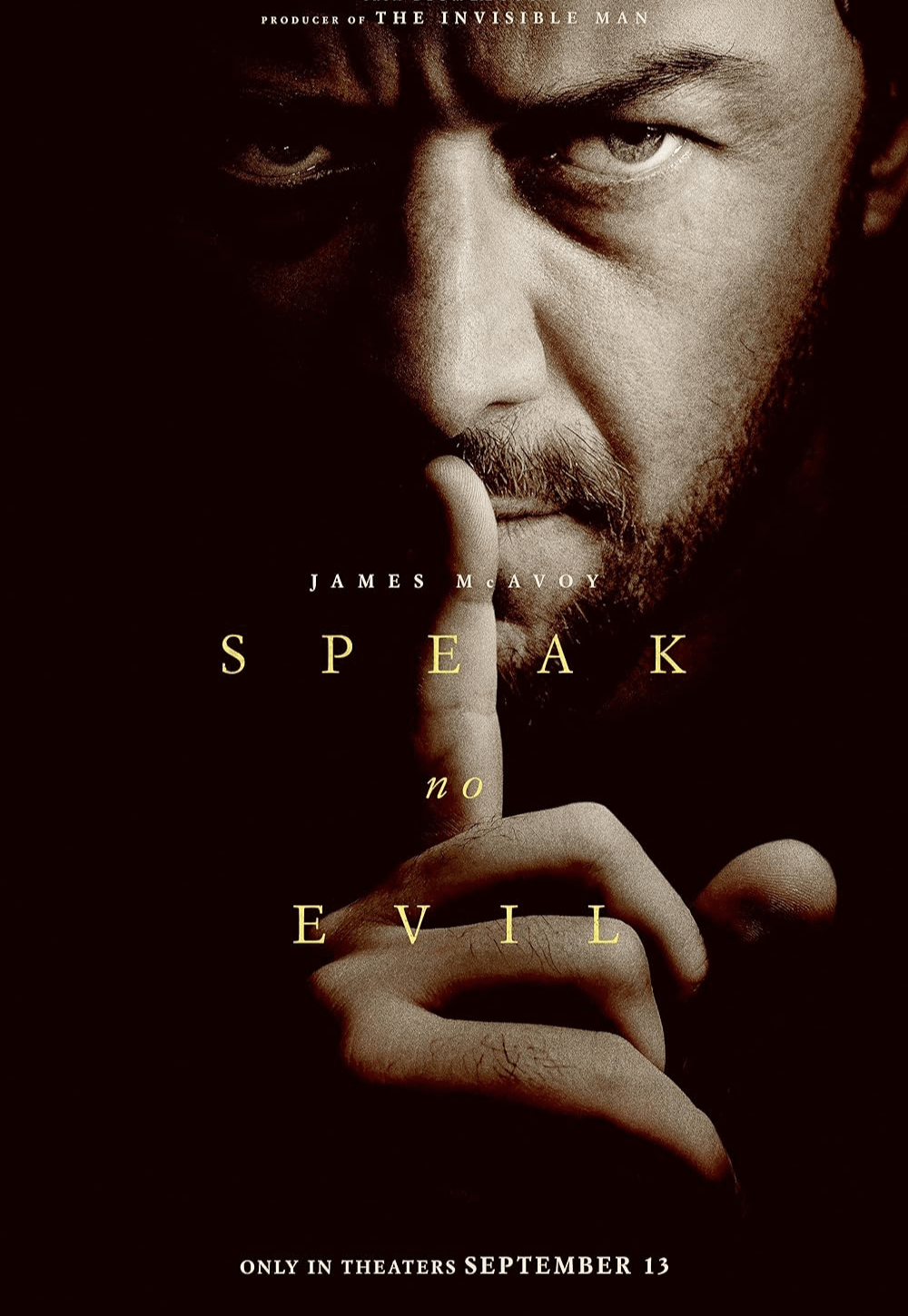
Unlock More from Deep Focus Review
To keep Deep Focus Review independent, I rely on the generous support of readers like you. By joining our Patreon community or making a one-time donation, you’ll help cover site maintenance and research materials so I can focus on creating more movie reviews and critical analysis. Patrons receive early access to reviews and essays, plus a closer connection to a community of fellow film lovers. If you value my work, please consider supporting DFR on Patreon or show your support in other ways.
Thank you for your readership!
Brian Eggert | Critic, Founder
Deep Focus Review



